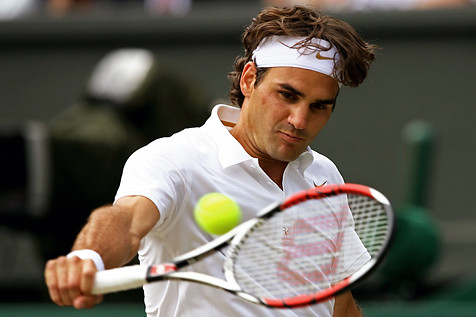I opened the link to this article with a measure of skepticism, because it seemed to me, at first glance, to be splitting hairs with a matter of semantics. Yet, the author of the article that got me to write this blog entry (Laura L. Hayes, who wrote a wonderful article for Slate in the spring of 2014 entitled 'How to Stop Violence Mentally ill people aren’t killers. Angry people are.') got me to view this issue from a different angle entirely. I would strongly recommend taking a look at what she has to say (the link is at the bottom of this blog entry).
If you have been following this blog for the past few days, you will likely lead to the inescapable conclusion that I have obviously been annoyed and upset by the reactions - or perhaps the lack thereof - to the school shooting in Parkland, Florida, which killed 17 people.
But here's the thing: this story is so familiar to us now here in the United States, that we hardly seem to be paying attention anymore, if we ever really did. Two days after the school shooting in Parkland, the news was back to the gridlock and idiocy in Washington, between Democrats and Republicans in Congress, and the Presidency. In other countries, 17 people killed in a high school would be an incident that would be discussed and analyzed from every possible angle, and the people would, and do, demand action. Here, it dominates news for a day, maybe two. That is how much we have grown used to these kinds of mass shooting incidents here. They are seen as the "new normal." People might not admit it when you outright say it, but yes, it seems we have lost our ability to be truly shocked by these incidents.
As quickly as these incidents break out, they seem to quiet down again, unless they are of staggering shock value and/or record numbers. Sandy Hook shocked us because of the numbers of people killed, as well as because of how young the victims were. It was shocking that completely innocent and defenseless little children would specifically be targeted by a deranged lunatic, who was trying to kill as many people as possible, and apparently quite literally felt like it was some kind of a competition with other school shooters. Or, of course, the mass shootings in Orlando and Las Vegas caught our attention. The first, perhaps, because it targeted a specific group - homosexuals - and was labeled as a "hate crime" (as if other mass shootings cannot be classified as "hate crimes"), and Las Vegas because of the sheer number of people killed, as well as the raw video footage that was all over the internet and the news afterwards, when we all saw what seemed like machine gun fire raining down from the 32nd floor of the Mandalay Bay hotel upon the crowd of concert goes assembled down below. Perhaps the shooting at Sutherland Springs also shocked us, because 26 people were killed, and the shooter did his killing in a church. Also, it followed fairly quickly after the Las Vegas shooting, just a few weeks after, really.
By and large, however, we Americans collectively hardly notice these kinds of things anymore. Again, most would not readily admit to it, but indeed, they no longer shock us, because they happen so often, that we have collectively grown immune to their shock value.
I mean, seriously, do you remember how shocking Columbine was? The news seemed to stop for several days, as the images of kids running and escaping in brutal fashion outside of class windows reached our living rooms and computer screens. It sparked all sorts of outrage, and debate lasted for not just days, but weeks. If we were going to get serious gun control passed, you might think that would have done it.
Somehow, though, it did not. And of course, there were more mass shootings. There was another, even bigger, school shooting on the campus of Virginia Tech in 2007. Shock, horror, and anger. But the shock and horror and outrage was not as pronounced as it had been for Columbine, and the news of it quieted down more quickly than it had with Columbine. We had other shootings, but the shock of the one at a Tuscon supermarket, with a Congresswoman being one of the victims (though she survived) also was shocking. But not as shocking as Columbine, and the news died down quicker still. Then, we were stunned and scared when a madman who had made up his hair to look a bit like the Joker opened fire and killed 12 people in a movie theater in Aurora, Colorado, just a few miles from Columbine High School. It dominated the news for a few days, but the shock and horror was much less pronounced than it had been for Columbine. Later that year, a horrific school shooting that targeted mostly little children at Sandy Hook Elementary School in Connecticut shocked the nation, and indeed the world, in a comparable manner to Columbine. There was talk of serious action to force restrictions on gun access. But ultimately, every one of these efforts was defeated, time passed, and nothing changed. There were other shootings, certainly. San Bernardino. Orlando, which I already mentioned, and which did generate enormous attention, perhaps because the 49 killed qualified it as the deadliest mass shooting in modern American history. But as the days wore on, it too yielded to more normal news. Then came Las Vegas qualified as the new record holder for deadliest mass shooting in modern American history, and absolute shock and horror. But again, no action, and the days passed. Then Sutherland Springs, and more debate, but it faded more quickly than Las Vegas had.
Now, Parkland, Florida, sees the third deadliest school shooting in modern American history, with only Virginia Tech and Sandy Hook having had more victims. Yes, there were actually four more killed in Parkland than there had been at Columbine. But almost two decades had passed, and we have grown so used to it, apparently, that it only dominates our news cycle for a couple of days, before already beginning to yield to what we would consider more normal news.
There is something seriously wrong here, and I am not even talking about the actual shooters or mass shooting incidents themselves. I am talking about us, and our collective reaction to it as Americans. If 17 killed in a high school in Florida fails to jolt us anymore, if we just post a few comments on Facebook and listen quietly to the news for a couple of days before, mercifully, the more "normal" news begins to dominate again, than the problem is starting to be us as much as it is the shooters.
Almost as quickly as we hear about the news, we see the responses online flooding in. Almost like trench warfare in a way, we dig in to whatever position we feel about the gun debate, and we see posts and memes and comments, both for and against tighter gun control. I am sometimes disappointed by the occasional twisting of facts by those who advocate tighter gun laws, but I am always shocked and appalled, admittedly, at the knee jerk response by gun enthusiasts after these kinds of incidents. It seems that they are more concerned with the possible ramifications to their right to acquire more guns, and the deadlier the gun the better, apparently, than they are with the victims. Sometimes, they seem almost to look for faults in the victims. After all, what is the argument of "the only thing that can stop a bad guy with a gun is a good guy with a gun" supposed to be, if not a convenient and easy assigning of blame to victims. It seems that they are saying that this simply would not happen if everyone, quite literally, were carrying at all times, under all conditions. That is also another way of accepting the mass gun violence - which really has reached the levels of an epidemic in this country, as truly the "new normal." Mass shootings are apparently just a new reality, and we should just deal with it the only way that these people know how, by playing the good guy with the white hat in an old western, and shooting the bad guy dead.
It makes me sick to think that the rest of the world is watching these horrors that routinely happen here, and scratching their heads to wonder just what is wrong with Americans. It makes me sick that the first reaction to mass shootings is fear that this might impact our own easy and convenient access to guns, which by the way, helps the NRA rake in the dough. In fact, the NRA seems to be profiting quite nicely from these mass shootings, as gun sales always spike up afterwards. After all, many people feel, or rather fear, that stricter gun laws will inevitably result, someday or other. It is almost as if they sense that this would be the normal response, or something, despite their own opposition to it.
Yes, gun advocates seem to be afraid that more reasonable gun laws will someday result from all of this. It happened in other countries, even though they seem to conveniently ignore this. But it is also common sense, and although they try to ignore this as the glaringly obvious truth, they pretend otherwise. They try to craft different arguments, try to make it seem that the "only" solution to gun violence is to make guns even easier to access. "Good guys" could still get guns, if they have a clean record, free of violent crimes, or domestic abuse charges, or some symptoms of being mentally disturbed. This truth seems so obvious, and runs completely counter to their own arguments that the only people who would no longer be able to get guns are good, law-abiding folks, that it seems almost laughable. So, if their issue is that making guns more difficult to access for criminals or domestic abusers or the mentally unfit, why are they so worried?
Of course, there is a lot of those kinds of irrational fears here in this country. Fears that any restrictions on guns would quickly turn to a government run amok and truly aiming to disarm citizens, so that they can send them off to death camps. If this seems like an insane fear, trust me that it is an oft repeated sentiment among gun advocates. There is also the fear that whites are being persecuted, and that they are quickly going to disappear, if this is allowed to happen. There is the fear that Christians are being persecuted, and this is especially in evidence whenever you hear people say around the holidays, "Keep Christ in Christmas." There are fears that Sharia law has already been instituted in many, if not most, American cities. Fears that social benefit programs are draining our economy and keeping the government budget in the red, even though these programs, collectively, are a fraction of the vast sums that go towards corporate welfare and the military industrial complex.
It is not a long trip from fear to resentment and even downright anger. And then, for people who cannot manage their anger, it is not too long of a step towards physical violence.
Mix that in with the all too easy access to guns in the United States right now, and you get staggering levels of violence. How staggering? Well, earlier today, I republished an old post about how over one million Americans have been killed by guns since John Lennon was assassinated, back in late 1980. Over one million, and obviously, that number just keeps rising!
This really is starting to reach the level of an epidemic. Most of those deaths do not get the sensationalist national headlines, or come with horrific images on our television screens. Only the most famous incidents - Columbine, Virginia Tech, Aurora, Las Vegas, and maybe Parkland - get that kind of attention. Most of these deaths are the ones that you hear spoken in somber tones during the nightly news, just before traffic updates or weather or sports. In other words, most of these deaths by guns remain largely hidden from public view, although they are hidden in plain site. When you hear about some teen who was shot in the city, does it spark serious gun debate? No, because many of the people who make the most noise seem to expect that kind of news, which makes it easier to dismiss.
According to a very interesting article by Laura L. Hayes of Slate, this anger is fairly easy to trace. Almost always, with very few exceptions (like with Stephen Paddock, the Las Vegas shooter), there are prior incidents if not even an extensive history, in some cases. In the vast majority of cases, some people knew of the violent tendencies of those who would become mass shooters. Immediately upon hearing the news of the Columbine tragedy, the father of Dylan Klebold suspected his own son as being involved. People were aware of Seung-Hui Cho's violent tendencies before he went on a rampage on the campus at Virginia Tech. James Holmes surprised some people, yet there were also signs with some of the strange behavior prior to the shooting that people could have picked up on, including fantasizing about killing. Everyone seemed to know that Adam Lanza had a disturbing history, although not enough people got involved to prevent the tragedy at Sandy Hook. Clearly, Devin Patrick Kelley, the shooter at Sutherland Springs, did not fly under the radar. There were signs there, and maybe the Air Force did not properly file paperwork that could have warned people about him. Somehow or the other, these signs were missed by the people who might have been able to step in an avert a tragedy.. It is becoming clear that Nikolas Cruz did not simply fly under the radar, but that people were in position to notice his behavior, and perhaps to get involved. Maybe that would have stopped the violence, or maybe not. But in each case, it was not simple mental issues that were the problem, but their inability to cope with their anger, and their subsequent propensity to lash out in their anger.
Here is what Hayes says about prior history in her article, backed up with some disturbing statistics:
In a summary of studies on murder and prior record of violence, Don Kates and Gary Mauser found that 80 to 90 percent of murderers had prior police records, in contrast to 15 percent of American adults overall. In a study of domestic murderers, 46 percent of the perpetrators had had a restraining order against them at some time. Family murders are preceded by prior domestic violence more than 90 percent of the time. Violent crimes are committed by people who lack the skills to modulate anger, express it constructively, and move beyond it.
Nor is this simply static, either. It has real impact, as people tend to attribute responsibility and guilt to the wrong thing:
"The attribution of violent crime to people diagnosed with mental illness is increasing stigmatization of the mentally ill while virtually no effort is being made to address the much broader cultural problem of anger management. This broader problem encompasses not just mass murders but violence toward children and spouses, rape, road rage, assault, and violent robberies. We are a culture awash in anger."
Earlier in the article, she suggested the blaming mental illness is a convenient form of scapegoating, and actually reinforces the angry and fearful to arm themselves to the teeth:
"It has become fashionable to blame mental illness for violent crimes. It has even been suggested that these crimes justify not only banning people with a history of mental illness from buying weapons but also arming those without such diagnoses so that they may protect themselves from the dangerous mentally ill. This fundamentally misrepresents where the danger lies."
She endorses one possible solution - or at least something that could help and surely would not hurt, is not to run away from the problem, but to tackle it head on, and early on, with kids:
"The truth is, anger management skills are simple techniques that can and should be taught to children and adolescents. We should not wait to teach these skills until verbally or physically violent behavior has become habitual and, often, life-threatening."
Hayes concludes her piece quite wonderfully and thoroughly, urging us not to put this issue at arm's length, simply because the conclusions scare us. The fact of the matter is that this issue is something that we all have to deal with, because we all have it in us, and are all responsible for, on some level or another:
Uncontrolled anger has become our No. 1 mental health issue. Though we have the understanding and the skills to treat the anger epidemic in this country, as a culture, we have been unwilling to accept the violence problem as one that belongs to each and every one of us. We have sought scapegoats in minority cultures, racial groups, and now the mentally ill. When we are ready to accept that the demon is within us all, we can begin to treat the cycle of anger and suffering.
Please take a look at the article below:
How to Stop Violence Mentally ill people aren’t killers. Angry people are. By Laura L. Hayes, April 9, 2014:
http://www.slate.com/articles/health_and_science/medical_examiner/2014/04/anger_causes_violence_treat_it_rather_than_mental_illness_to_stop_mass_murder.html?wpsrc=sh_all_dt_fb_ru












